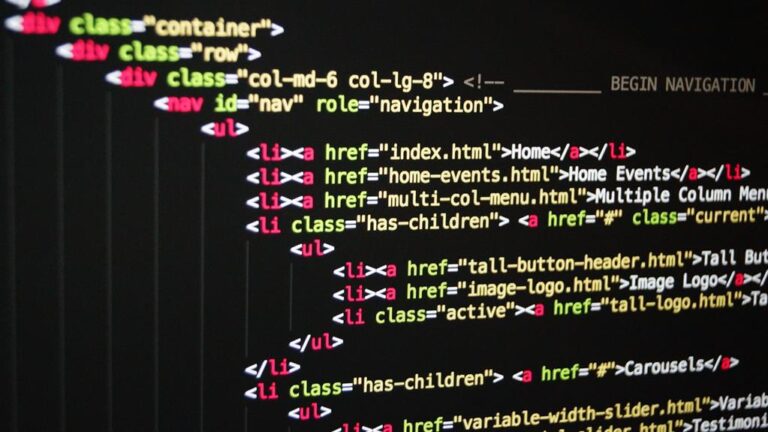When Tesla launched its full self-driving cars, it wasn't just a leap for transportation, it signified a shift in how I understand work. I'm watching as automation transforms industries, redefining what jobs look like and who or what performs them. It's not about fearing the machines; it's about grasping the reins of change for empowerment. As sectors from manufacturing to services integrate AI, the demand for certain skills morphs, and I'm intrigued by how we need to adapt. The potential for economic upheaval is real, but so is the opportunity for innovation and job creation. I'm exploring the role education must play to prepare us for this new landscape and considering how policies like universal basic income could cushion the transition. Let's discuss the responsibility of corporations in this technological march forward and how global trends in automation will shape our collective future.
Automation Drivers in Employment
I've observed that the primary drivers of automation in employment are technological advancements, economic pressure for efficiency, and the pursuit of reducing human error. As we navigate this shifting landscape, I can't help but be captivated by the promise of liberation that automation might offer. It's not just about replacing repetitive tasks; it's about elevating our human potential, freeing us to engage in more creative and strategic endeavors.
Within the realm of workforce analytics, we can now harness vast amounts of data to forecast trends, pinpoint skills gaps, and identify opportunities for automation to augment human work. It's a thrilling prospect – to have deep insights that inform not just the future of work, but also how we prepare for it. This is where policy adaptation plays a critical role. Policies need to be agile, crafted with foresight to facilitate a smooth transition into increasing automation. They must ensure that workers aren't left behind but are instead empowered to thrive alongside new technology.
The dialogue around automation is often fraught with apprehension, but I'm convinced it can be reframed as a narrative of empowerment. By understanding the drivers of automation – acknowledging the push for efficiency, the undeniable benefits of minimizing errors, and the relentless pace of tech innovation – we can proactively shape a future where technology liberates rather than confines.
Embracing automation, in conjunction with strategic policy adaptation and informed workforce analytics, is a pathway to unlocking human creativity and fostering an environment where everyone has the opportunity to excel in meaningful, fulfilling roles. The future is not about displacement; it's about transformation – of our work, our policies, and ourselves.
Sectors Most Affected by AI
As we turn our attention to specific industries, it's clear that some sectors are feeling the impact of AI more profoundly than others. Manufacturing, for instance, is undergoing significant transformation with automation reshaping assembly lines and workflows. Likewise, healthcare services are increasingly incorporating AI to enhance patient care and streamline administrative processes.
Manufacturing Automation Trends
In examining the sectors most profoundly transformed by AI, it's clear that the manufacturing industry stands at the forefront of this automation revolution. Smart factories are now a reality, where systems are interconnected, machinery is self-optimizing, and data analytics drive efficiency. I'm seeing production lines where collaborative robots, or "cobots," work alongside humans—not to replace them, but to enhance their capabilities. These cobots are designed for safety and flexibility, freeing workers from monotonous or dangerous tasks and allowing them to focus on more creative, fulfilling work. It's a liberating shift, empowering employees to upskill and engage in more meaningful roles. This trend isn't just a fleeting phase; it's the future of manufacturing, merging human ingenuity with robotic precision.
AI in Healthcare Services
Shifting focus to healthcare, I'm witnessing AI's profound impact as it revolutionizes patient care, diagnostics, and administrative processes. The surge of AI in this sector is a beacon of liberation, offering a future where healthcare is more accessible, personalized, and efficient. However, this transformation isn't without its challenges:
- Ensuring patient privacy is paramount, as AI systems handle sensitive data.
- The development of ethical algorithms that make unbiased decisions is critical.
- Streamlining administrative tasks to allow healthcare professionals more time for patient care.
I'm keenly aware that as AI reshapes healthcare, we must vigilantly safeguard the freedom and rights of individuals. Ethical oversight and transparent practices are essential to ensure AI serves as a tool for liberation, not oppression.
Skills Demand Shift Due to Automation
As automation reshapes our work landscape, I can't help but notice the urgent need for reskilling. With new tech tools emerging every day, I see a spike in demand for both technical proficiencies and enduring soft skills. It's clear that to stay relevant, I'll need to adapt and hone a diverse skill set tailored for the automated future.
Reskilling Imperative
The automation-driven skills revolution compels me to embrace reskilling as an essential step for future job security. I recognize that worker adaptability isn't just a buzzword; it's the cornerstone of my ability to thrive amidst technological change. Career counseling, once seen as a tool for the uncertain, is now pivotal in guiding me through the labyrinth of new opportunities automation presents.
Here's what I'm focusing on:
- Identifying skills that machines can't replicate, like creative problem-solving and emotional intelligence.
- Seeking out training programs that are responsive to the shifting demands of the job market.
- Cultivating a mindset of lifelong learning to stay agile and relevant.
This isn't just about keeping up; it's about setting myself free in a world where the only constant is change.
Emerging Technical Proficiencies
In the face of automation's rapid advancement, I'm keenly aware that mastering emerging technical proficiencies is critical for my career progression. The shift in skills demand due to automation isn't just a challenge; it's an opportunity to break free from mundane tasks and embrace more creative, impactful work. Here's a snapshot of the skills that'll keep me in the game:
| Skill Category | Importance | Example |
|---|---|---|
| Digital literacy | Essential | Navigating digital tools |
| Coding proficiency | High | Writing and understanding code |
| Analytical thinking | Crucial | Interpreting data trends |
Digital literacy is my ticket to liberation, ensuring I can adapt to new tools. Meanwhile, coding proficiency isn't just about writing lines of code; it's about understanding the language that will shape our future. Analytical thinking will empower me to interpret the vast seas of data automation generates. It's clear; these are the keys to unlock my potential in an automated world.
Soft Skills Importance
Beyond these three technical skills, I'm also honing my soft skills, recognizing that they're equally vital in an automated workplace. As machines take over routine tasks, my emotional intelligence becomes my edge, enabling me to navigate complex interpersonal dynamics where algorithms fall short. I'm investing in my ability to understand and manage my own emotions as well as those of others, fostering collaboration and empathy.
- Emotional intelligence: Strengthening my capacity for empathy, self-regulation, and social skills.
- Cultural adaptability: Embracing diversity and showing agility in adjusting to various cultural contexts.
- Persuasion and negotiation: Enhancing my ability to influence and reach mutually beneficial agreements.
These skills represent freedom from the mechanical, ensuring I remain irreplaceable in a tech-driven future.
Economic Impact of Technological Displacement
I've observed that technological displacement, while streamlining productivity, also significantly reshapes labor markets and economic structures. This phenomenon isn't just about robots replacing human hands; it's about the entire framework of work being rewritten. Job polarization is a stark reality here. High-skill jobs demanding creativity and problem-solving thrive, often enhanced by technology, while many middle-skill jobs susceptible to automation face extinction. What's left is a divide, with low-skill, low-pay jobs swelling at one end and a concentration of high-pay, high-skill jobs at the other. This split carries a message that's impossible to ignore for anyone who dreams of a career liberated from the shackles of obsolescence.
Unemployment trends are a telling signpost in this economic reshuffling. It's not just the numbers that matter—it's who is being left behind in this march toward progress. As automation sweeps through industries, it's the vulnerable, the less-educated, and often the younger workers who find themselves first in line to feel its disruptive embrace. For them, the future of work doesn't just look different—it looks daunting.
But there's a spark of optimism in this transformative age. If we pivot our perspective, we can see these challenges as a call to liberate our potential. By embracing lifelong learning, fostering adaptability, and championing policies that support those caught in the crosshairs of change, we can turn the tide of technological displacement. The future can be less about the loss of jobs and more about the liberation of human endeavor, as we harness technology to create not just new kinds of work, but a more inclusive and dynamic economy.
Job Creation Through Automation
As we navigate the complexities of automation, I'm struck by its capacity for job creation across various sectors. It's not just about robots taking over; it's about the dawn of new industries and the evolution of work. Smart factories are a prime example, epitomizing how automation can generate employment that demands more cognitive skills and less manual labor. These advanced manufacturing environments foster roles in programming, maintenance, and system analysis that simply didn't exist before.
Furthermore, automation paves the way for entrepreneurship opportunities. Individuals are now empowered to create innovative solutions leveraging technology, thereby establishing start-ups and expanding the job market. It's a liberating shift, freeing us from traditional job constraints and opening a world where creative thinking and strategic planning are key.
Consider these noteworthy points:
- Automation encourages the development of high-tech jobs, requiring a more skilled workforce.
- It fosters the creation of roles that manage, supervise, and evolve automated systems.
- There's a surge in demand for professionals who can bridge the gap between humans and machines, focusing on user experience and system efficiency.
We're stepping into an era where automation isn't a threat but an ally, catalyzing growth and diversifying the job landscape. It's incumbent upon us to embrace this transformation, reskill where necessary, and unleash the full potential of a workforce complemented by machines. In doing so, we're not just securing jobs; we're crafting a future that's ripe with possibility, autonomy, and the freedom to innovate. Automation, in this light, isn't a harbinger of job scarcity but a beacon of job genesis.
Governmental Strategies for Workforce Transition
To effectively navigate the workforce transition driven by automation, governments must implement strategic policies that facilitate the reskilling and upskilling of their citizens. It's high time we break out of old paradigms and embrace policy innovation that not only prepares us for the future but also champions workforce diversity.
I see a future where continuous learning is woven into the fabric of our society, a future where everyone, regardless of their background, has the opportunity to thrive in a rapidly changing job market. The role of governments is crucial in crafting inclusive policies that cater to a diverse populace, ensuring that the benefits of automation are accessible to all.
Policy innovation must address the unique needs of different demographic groups. For instance, young people entering the job market require different support compared to older workers who might be facing obsolescence in their current roles. Women and minorities, historically underrepresented in STEM fields, should be given targeted assistance to break into these growing industries.
Investments in education and vocational training tailored to the jobs of tomorrow are non-negotiable. Government programs should incentivize lifelong learning and support transitions into new careers. This isn't just about economic stability; it's about empowering individuals to make autonomous career choices, free from the fear of being left behind by technological advancement.
Furthermore, public-private partnerships can be a powerhouse for workforce development. By collaborating with businesses, governments can ensure training programs are directly aligned with the skills employers need.
It's a bold path forward, but it's one that we must take. As we stand at the crossroads of a new industrial revolution, let's champion policies that uphold the value of every worker and cultivate an environment where diversity and innovation drive us toward a more liberated future.
Education's Role in Future Employment
As we turn to education's role in future employment, it's evident that our school curriculums must adapt to prepare students for a world where automation is ubiquitous. The evolution of skillsets is crucial; I believe we need to focus on fostering adaptability and tech-savviness from early on. Moreover, instilling the importance of lifelong learning can ensure that workers remain competitive as job landscapes continuously shift.
Curriculum Adaptation
I believe education systems must evolve their curricula to integrate skills that align with an automated future workforce. The onus is on educational institutions to champion pedagogical innovation, ensuring that students are not just consumers of technology but shapers of it. Digital literacy should be the cornerstone of modern learning, equipping individuals with the ability to navigate, evaluate, and create within an increasingly digital world. To achieve this, I propose a three-pronged approach:
- Incorporate coding and computational thinking from early education.
- Emphasize data analysis and interpretation across disciplines.
- Foster adaptability and creative problem-solving skills.
Education should liberate us, prepare us to work alongside machines, and empower us to excel in environments where automation is the norm.
Skillset Evolution
Harnessing technology's potential, I'll now explore how education must pivot to facilitate skillset evolution in the face of automation's impact on future employment. As we break free from traditional job roles, digital literacy becomes non-negotiable. It's the cornerstone of a liberated workforce, capable of navigating an increasingly digital landscape. Further, fostering an entrepreneurial mindset is paramount; it equips us with the agility to create opportunities where machines complement human ingenuity rather than replace it.
Embracing this shift isn't just about adapting – it's about thriving. By nurturing these skills, education can unlock our full potential, ensuring we're not just employable but indispensable in an automated future. It's time to redefine our learning objectives, ensuring they're aligned with the needs of a liberated, dynamic workforce.
Lifelong Learning Importance
In the age of automation, I've come to realize that lifelong learning is not just beneficial but essential for adapting to the ever-evolving demands of the workforce. As jobs transform, here's what I believe matters most:
- Digital literacy: It's the currency of tomorrow's job market.
- Adaptive mindsets: Staying flexible and ready to pivot is key.
- Continuous skill refinement: To remain relevant, I must perpetually upgrade my abilities.
I'm convinced that to thrive in this dynamic environment, I must embrace education as a constant companion. It's about more than just keeping up; it's about asserting my agency and shaping my own destiny. With machines on the rise, my human capacity to learn and adapt becomes my most liberating power.
Universal Basic Income Considerations
As automation reshapes the labor market, I'm convinced that the concept of a Universal Basic Income (UBI) warrants rigorous exploration as a potential buffer against economic displacement. The dawn of intelligent machines performing jobs that humans once held raises significant automation ethics questions. In the face of such unprecedented change, it's our moral imperative to consider how we can support individuals who may find themselves abruptly sidelined by technology.
The implementation of a UBI presents a bold stride toward economic liberation. By securing a financial safety net for all, we acknowledge the intrinsic value of each person beyond their labor. It's a way to empower people to pursue work that's meaningful to them, without the crippling fear of not being able to meet basic needs. However, I'm aware of the policy challenges that accompany this vision. The transition to a system that provides a UBI requires careful planning, and a sustainable funding strategy is paramount to its success.
We must ask ourselves how we can design a UBI that doesn't just serve as a temporary bandage but as a stepping stone to a more equitable society. I see it as a catalyst for innovation and creativity, where freed from the chains of economic scarcity, individuals can invest time in learning, entrepreneurship, or community building.
Corporate Responsibility in Technological Progress
I believe that companies driving automation must also take the lead in addressing the societal impacts of this technological evolution. The surge in automation holds promise for unprecedented efficiency and wealth creation, but it comes with the responsibility to ensure that the transition is as equitable as possible. Ethical automation isn't a luxury; it's a necessity in a world where the gap between the tech-savvy and the rest could widen alarmingly.
Corporate responsibility means more than just reaping profits; it's about fostering a culture where every stakeholder has a voice and can benefit from technological advancements. Here are some ways companies can step up:
- Transparent Communication: Keeping stakeholders in the loop regarding automation strategies and potential impacts on jobs.
- Investment in Training: Offering opportunities for employees to upskill and adapt to new roles created by automation.
- Community Engagement: Partnering with local communities to support programs that prepare the workforce for the future job market.
Stakeholder engagement is crucial in this endeavor. Businesses must listen and respond to the concerns of their employees, customers, and the communities they operate in. This dialogue can shape a more inclusive future where technology serves all, not just a select few.
The goal is liberation from the fear of displacement and the fostering of a proactive, prepared society. By taking responsibility, companies can help build a world where automation is synonymous with opportunity, not uncertainty. It's time for businesses to step up and lead the way to a future where progress includes everyone.
Global Trends in Automation and Jobs
The global labor market is undergoing a seismic shift as automation reshapes the landscape of available jobs and required skills. It's clear that we're not just on the cusp of change; we're right in the midst of it. Future predictions suggest that many of today's jobs will be performed by machines within the next few decades. However, this doesn't mean we're marching towards a jobless dystopia. On the contrary, I see this as a chance to break free from monotonous work and engage in more creative and fulfilling tasks.
As we navigate this transition, workforce diversity becomes more crucial than ever. We're not just talking about diversity in terms of gender, race, or background—though these are undeniably important—but also in terms of skills and perspectives. Automation doesn't affect all jobs equally, so we need a diverse pool of talents to tackle the challenges and seize the opportunities that lie ahead.
For me, embracing automation means recognizing its potential to liberate us from the drudgery of repetitive tasks. It's about harnessing this powerful force to create a more inclusive and innovative job market. If we play our cards right, we can not only protect jobs but also create new ones that are more aligned with our human capacities for creativity, empathy, and strategic thinking.
I'm optimistic that we can steer this ship in a direction that benefits everyone. With the right mindset and policies, we can ensure that automation becomes a tool for empowerment, not displacement. It's time to embrace the future of work with open arms and a readiness to adapt. Let's shape a world where work is not just about making a living, but also about making a life worth living.
Frequently Asked Questions
How Can Small Businesses and Entrepreneurs Leverage Automation Without Significant Capital Investment?
Imagine a world where I can boost my small business's efficiency without breaking the bank. I've found that using cost-effective tools, like open-source software, lets me automate without hefty costs. I also form strategic partnerships with tech providers and other businesses, which helps me access more advanced automation tools. It's empowering to tap into this tech revolution, ensuring my business stays competitive and agile in a fast-evolving marketplace.
What Psychological Effects Does the Increased Presence of Automation in the Workplace Have on Employees, and How Can Companies Mitigate Potential Negative Impacts?
The rise of automation can spike employee anxiety, making folks feel replaceable. It's key for me to embrace change, fostering resilience through training. Companies ought to support their teams, helping us adapt and grow alongside new tech. They should invest in our skills, ensuring we're not just surviving but thriving. With the right mindset and resources, we can all find our place in this evolving landscape.
How Does Automation Influence the Gig Economy and the Nature of Short-Term Contract Work?
Automation's spreading through the gig economy like wildfire, reshaping the landscape. It's testing our resilience, but it's also offering a new kind of flexibility. I'm finding that gig jobs are morphing, some disappearing while others pop up unexpectedly. To stay free and afloat, I'm embracing this change, learning new skills, and adapting fast. It's a wild ride, but it's the price of liberation in this automated era.
What Are the Ethical Implications of Automating Jobs That Are Traditionally Held by Vulnerable or Marginalized Populations?
Automating jobs raises serious equity challenges. It's about who's bearing the brunt of displacement risks. I'm troubled by the thought of vulnerable communities losing livelihoods to machines. There's a moral duty to protect these groups and ensure they're not left behind. As someone who yearns for liberation, it's clear that automating with care and conscience is crucial for a just and inclusive future for all workers.
In What Ways Could Automation Reshape Rural Economies and the Agricultural Sector Specifically, Beyond the Industrial and Service Sectors?
Imagine verdant fields transforming as digital farming takes root. I see automation reshaping rural economies by advancing rural tech, enhancing crop yields, and streamlining operations. It'll liberate farmers from traditional constraints, allowing them to manage larger swathes of land with precision and efficiency. This shift promises not just abundance but a renaissance in how we cultivate our food and sustain our communities, marrying age-old traditions with the pulse of modern technology.



